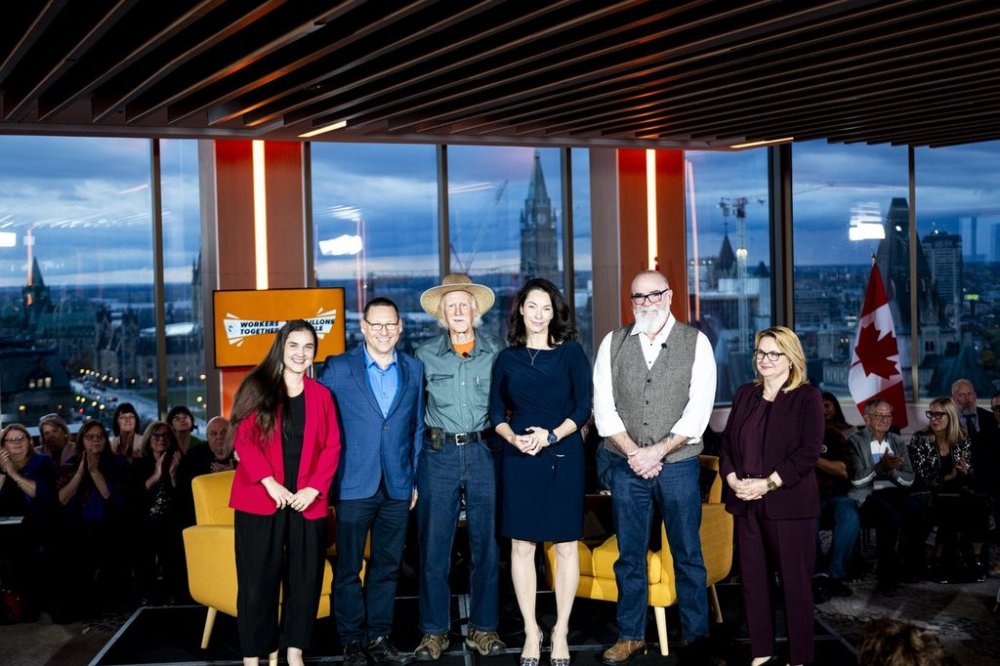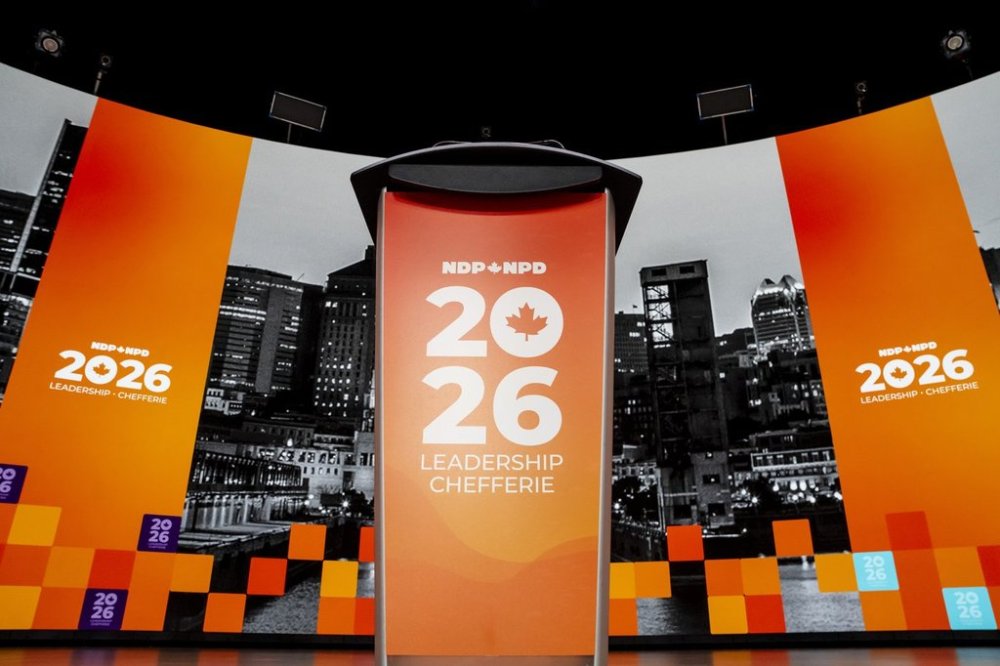NDP leadership candidates acknowledge need to improve French in Montreal debate
Advertisement
Read this article for free:
or
Already have an account? Log in here »
To continue reading, please subscribe:
Monthly Digital Subscription
$0 for the first 4 weeks*
- Enjoy unlimited reading on winnipegfreepress.com
- Read the E-Edition, our digital replica newspaper
- Access News Break, our award-winning app
- Play interactive puzzles
*No charge for 4 weeks then price increases to the regular rate of $19.00 plus GST every four weeks. Offer available to new and qualified returning subscribers only. Cancel any time.
Monthly Digital Subscription
$4.75/week*
- Enjoy unlimited reading on winnipegfreepress.com
- Read the E-Edition, our digital replica newspaper
- Access News Break, our award-winning app
- Play interactive puzzles
*Billed as $19 plus GST every four weeks. Cancel any time.
To continue reading, please subscribe:
Add Free Press access to your Brandon Sun subscription for only an additional
$1 for the first 4 weeks*
*Your next subscription payment will increase by $1.00 and you will be charged $16.99 plus GST for four weeks. After four weeks, your payment will increase to $23.99 plus GST every four weeks.
Read unlimited articles for free today:
or
Already have an account? Log in here »
OTTAWA – The NDP leadership candidates admitted they need to brush up on their French-language skills when they faced off for the campaign’s first debate in Montreal.
The debate on Thursday began with a plan to have 60 per cent of it take place in French, but most of the conversation happened in English.
Documentarian Avi Lewis and Alberta MP Heather McPherson spoke the most French, while union leader Rob Ashton, social worker Tanille Johnston and organic farmer Tony McQuail worked it in. Ashton pledged to continue building his French skills on about five separate occasions.

One of the five themes of the debate was how to rebuild support and win in Quebec, the province that sent the NDP to the official Opposition benches in the 2011 election.
“If we want to come back in Quebec, we need to speak to Quebecers in their language,” Lewis said in French. “Right now, we’re not up to the job to come back in strength. We need to come back with a clear offer in French.”
However, other candidates argued that their message can transcend language barriers.
“I don’t believe a language barrier should prevent us from being great. I think we can work across that,” Johnston said. “My adult life has been spent trying to hone my native language of Likwala … I really feel the commitment, deep, to language as Quebecers do, as francophone folks do. I really hope that we can bridge that gap.”
McPherson said the party needs to focus on building stronger local riding associations in order to have a solid funding and volunteer base to rebuild its presence in Quebec.
McQuail said he wants to see alliances built with other progressive parties in Quebec, and nationally, to get more like-minded people in office.
Ashton said that while his French skills aren’t strong, he speaks the language of labour that is universal and the cost-of-living challenges faced by workers are the same.
Other topics included advancing Indigenous reconciliation, winning back workers, and if candidates see the NDP as an election winner or the conscience of Parliament.
McPherson talked about how she bridged gaps between the federal party and former Alberta NDP premier Rachel Notley.
“I have to say, when Rachel Notley stood with me and endorsed me at my launch, I was extraordinarily proud, because rebuilding the relationship between the federal NDP and the provincial NDP was a goal of mine,” McPherson said.
“When we win, when New Democrats get elected, we make life better for Canadians and that is so important.”
Ashton said he sees the path to victory by showing regular people how to fight against “the language of hate” he said is coming from the political right.
“If you look what they’re doing in Manitoba and B.C., what they did in Alberta, when the NDP takes power, they show people that it’s OK to love each other, that it’s OK to give somebody a hand up. That’s what we have to do with workers today,” Ashton said.

McQuail said that if the NDP wants to have a shot, Canada needs to move toward a proportional representation electoral system.
“I’ve been listening to speeches and great ideas like the ones we’ve just heard for over 45 years. But unless we start fixing our relationship with the first-past-the-post electoral system, none of this will come to pass,” he said.
Johnston said the federal NDP needs to make better use of student activists, pointing to successful volunteer mobilization at the provincial level.
“The students come out in 30 and 40 folks to come and help door-knock in provincial elections. We’re not seeing that turnout federally. That relationship is not there, and that has to change,” she said.
Lewis said there is a “false dichotomy” between the idea of having to decide between putting forward big ideas, like public grocery stores, and winnability.
“Ideas like this won’t just win us back voters, they’ll bring in people who don’t vote at all. We win by offering hope in hard times,” Lewis said.
The candidates are scheduled to meet again in February for a debate being held in B.C.
New Democrats are set to choose their next leader on March 29 during the party’s annual convention in Winnipeg.
This report by The Canadian Press was first published Nov. 27, 2025.

